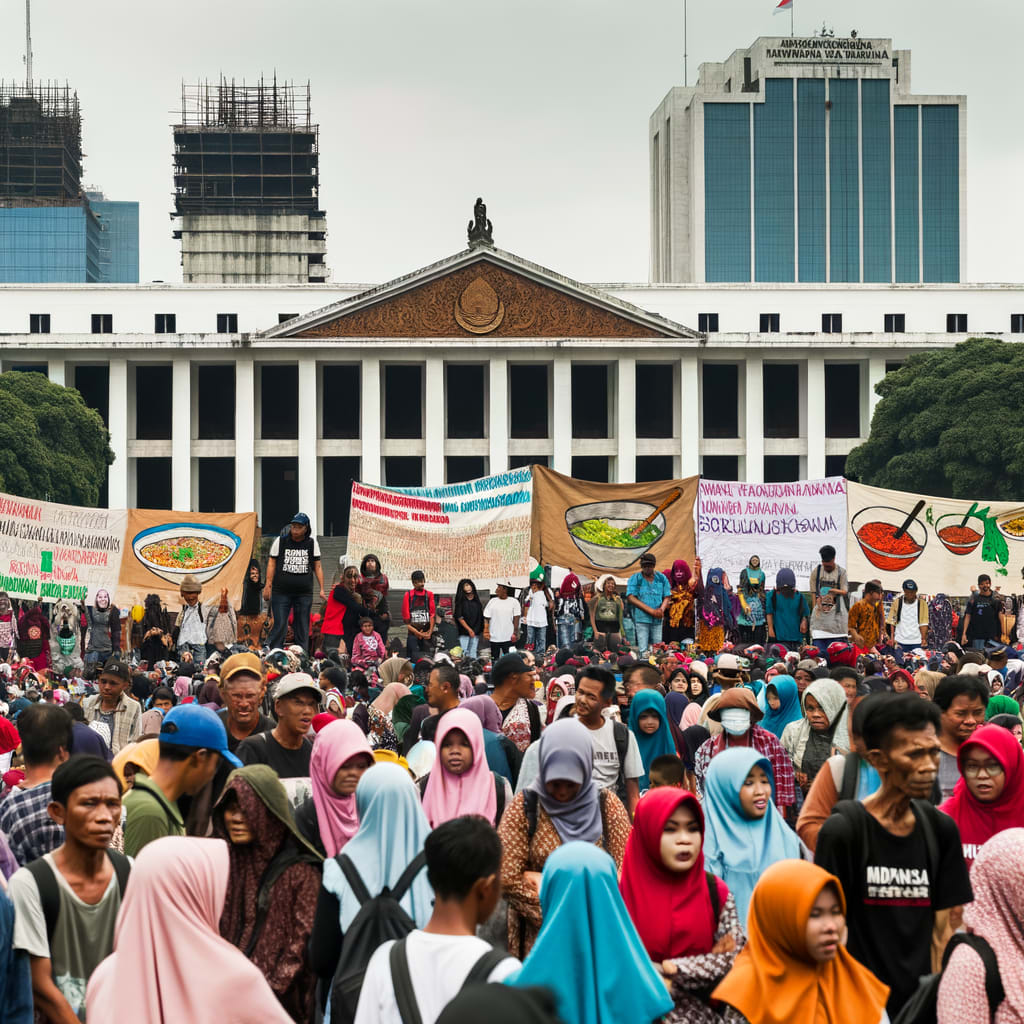Unrest in Indonesia: Protests, Economic Inequality, and a Controversial School Meals Program
Indonesia, Southeast Asia’s largest economy, is currently grappling with mass protests, increasing economic inequality, and a controversial free school meals program. The protests, triggered by discontent over economic disparity and perceived lavish perks for lawmakers, have led to violent confrontations between civilians and security forces. Additionally, the government's school meals program has come under scrutiny following multiple cases of mass food poisoning.
Background and Context
The root causes of the protests can be traced back to deep-rooted resentment between the country's economic elites and the underprivileged population. According to experts, little has been done to address the economic inequality fueling the unrest, leaving deep resentment to linger and potentially flare up again. In recent weeks, the unrest has intensified, with parliament buildings set ablaze and over 1,000 people arrested (Sky News World).
Key Developments
President Prabowo Subianto’s administration has been under scrutiny for its economic policies, which have been criticized for deepening inequality. Despite attempts to mollify public anger, such as the cancellation of recently granted privileges to parliamentarians, the protests have intensified. Prabowo's ambitious spending, coupled with a corrupt coalition inherited
from his predecessor, has been seen as a limiting factor in addressing the issues at the root of the protests (South China Morning Post).
In addition to the economic concerns, the government's free school meals program has been marred by several instances of mass food poisoning. The latest incident, in the western Bengkulu Province, saw around 400 children fall ill, marking the worst case of mass food poisoning linked to the program to date (South China Morning Post).
Implications and Reactions
The unrest has not only led to domestic instability but also raised concerns internationally, particularly regarding the safety of tourists visiting the famous holiday destination of Bali. However, local officials have moved to reassure foreign visitors, claiming that the island remains peaceful despite the unrest (South China Morning Post).
Internationally, the protests have sparked a wave of solidarity from across Southeast Asia. Thousands of social media users from around the region began ordering meals via delivery apps for Indonesian riders caught in the turmoil of the protests, expressing their support for the struggling underclass (South China Morning Post).
Conclusion
The Indonesian government's response to the protests has been firm, with President Prabowo labeling the demonstrations as 'treason and terrorism' (Deutsche Welle). Nonetheless, the country's ongoing economic issues, coupled with the controversy surrounding the school meals program, suggest that Indonesia's unrest is far from over. Addressing these concerns will require not just short-term measures but a concerted effort to address the root causes of economic inequality.

